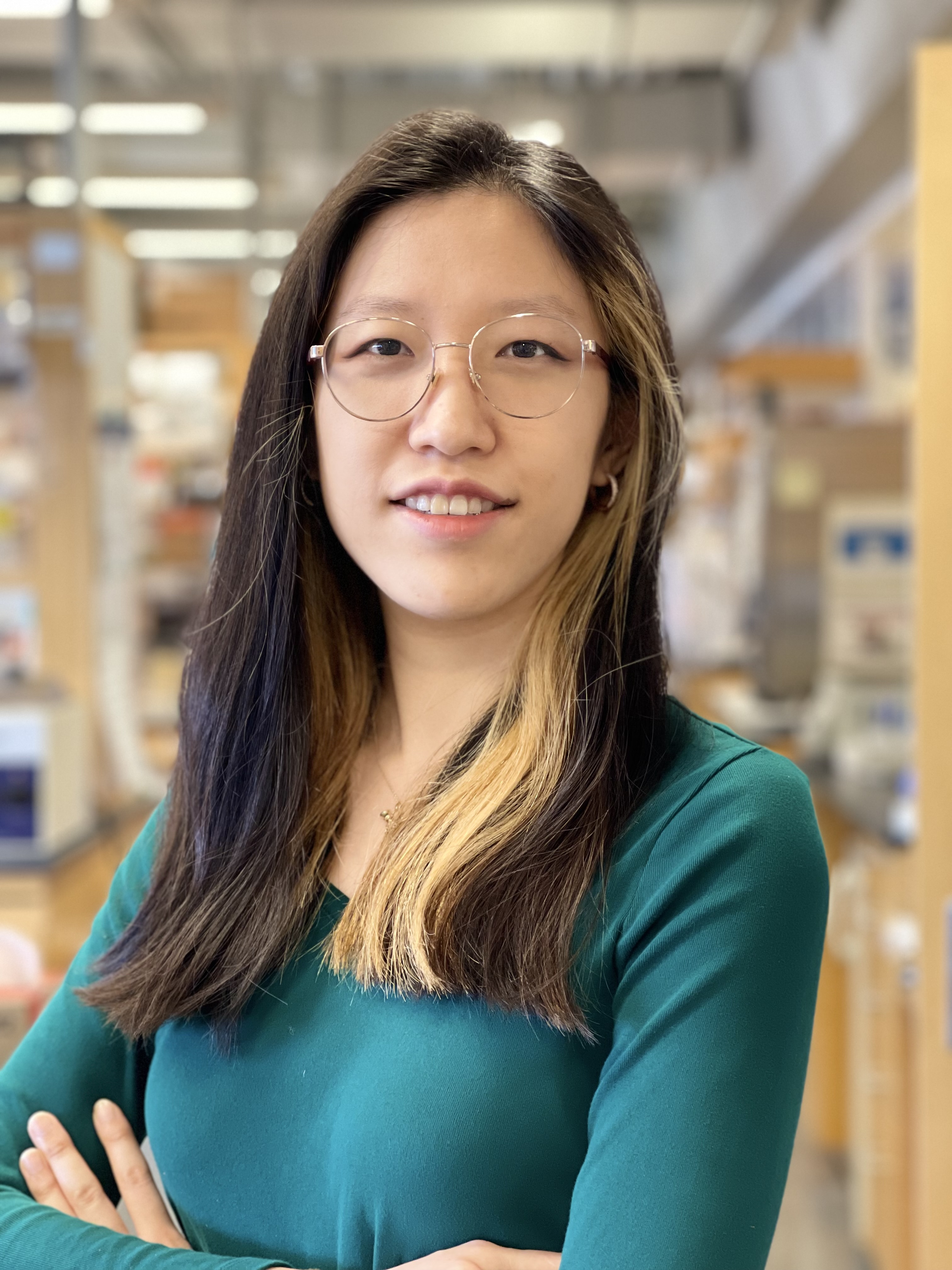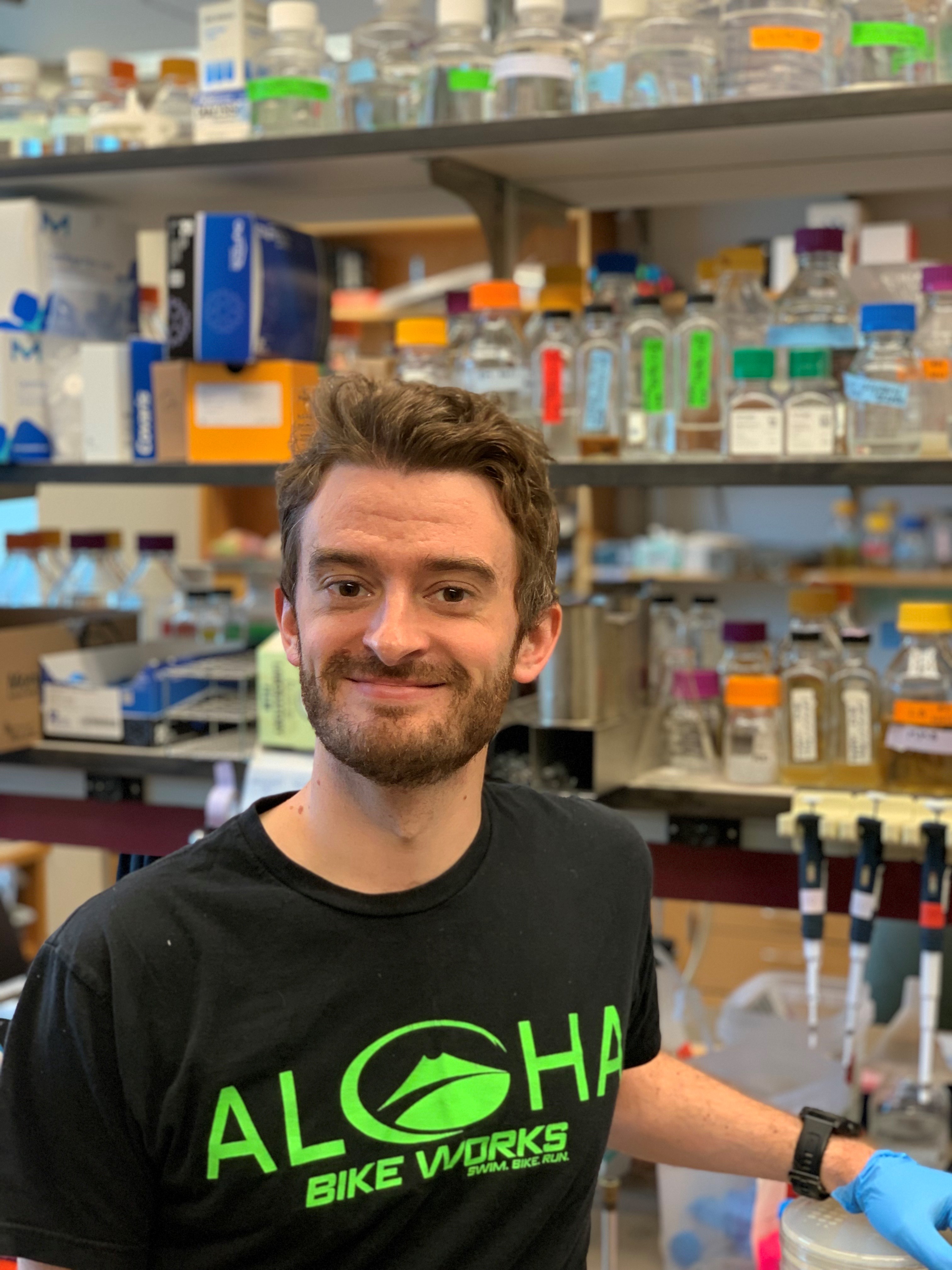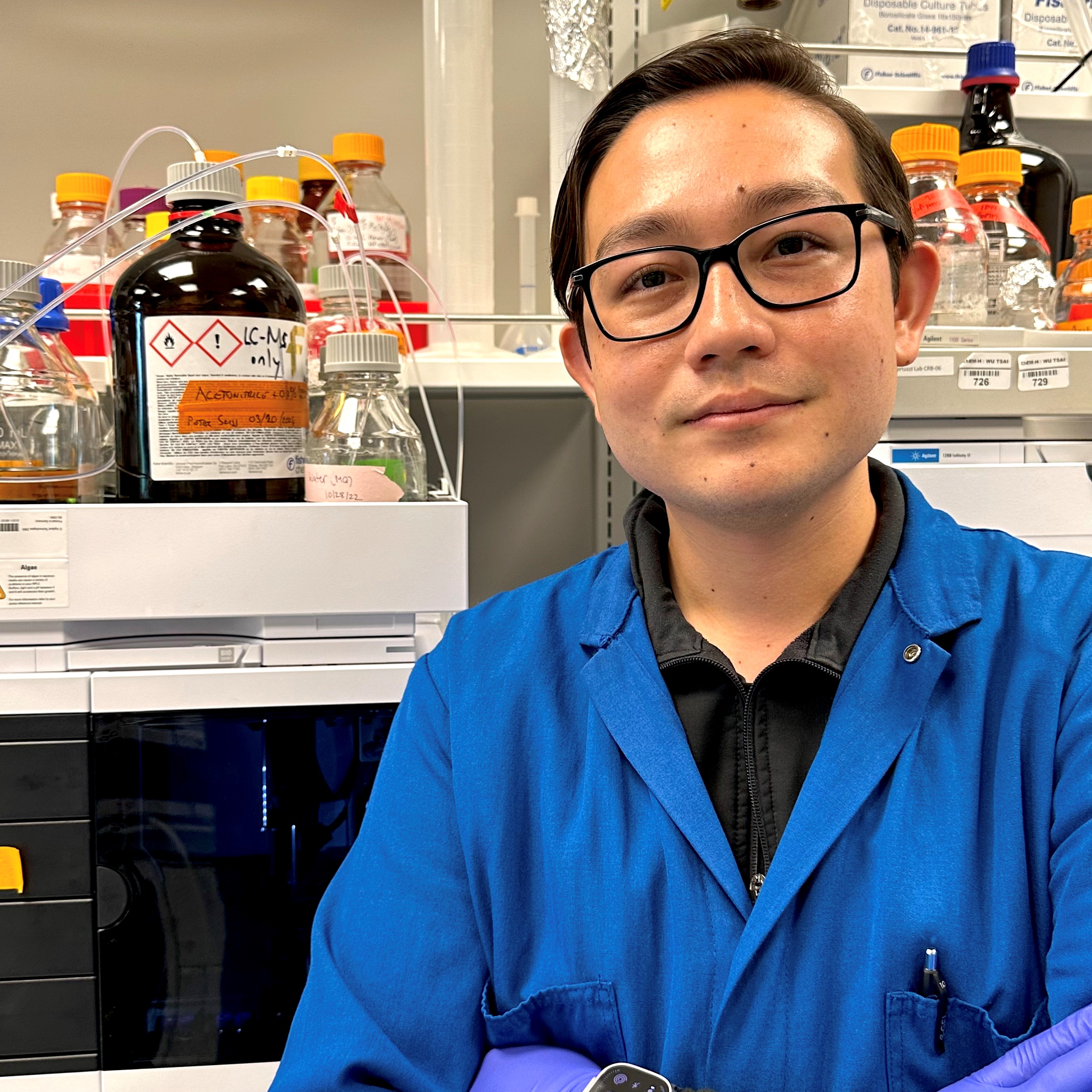Antonio Cuevas-Navarro, PhD

Dr. Cuevas-Navarro’s [Berger Foundation Fellow] research project focuses on targeting mutations in the RAS genes (HRAS, NRAS, and KRAS), present in about 30% of cancer patients and notorious for driving aggressive tumor growth. Dr. Cuevas-Navarro aims to mitigate these mutations’ effects by using pharmacological agents to enhance a biochemical process that regulates RAS proteins. His project will investigate the mechanism of action of these compounds and assess their effectiveness in patient-derived cancer models. This research has the potential to expand treatment options across various cancer types, including those where current treatments are limited. Dr. Cuevas-Navarro received his PhD from University of California, San Francisco and his BS from University of California, Davis.
Philip T. Pauerstein, MD, PhD

Leukemia is a cancer of the immune system and is a major cause of death from cancer in children and young adults. Chimeric antigen receptor (CAR) T cell therapy, which involves genetic engineering of a cancer patient’s own immune system cells to fight cancer, has demonstrated curative potential. Despite excellent initial responses to treatment, however, leukemia recurs in up to half of pediatric leukemia patients after CAR T treatment. A major cause of treatment failure is that CAR T cells do not attach to cancer cells as strongly as natural T cells do to their targets, and this limits their ability to find and kill cancer cells. Dr. Pauerstein’s research is attempting to improve CAR T cell sensitivity to cancer cells using synthetic cell adhesion molecules, a type of molecular glue between two cells. Engineering adhesion into CAR T cells should build a synthetic immune synapse that can help improve cell-based treatments for leukemia and eventually other cancers. Dr. Pauerstein received his MD, PhD from Stanford University, Stanford and his BA from Rice University, Houston.
Sagar Bhattacharya, PhD

Peptide drugs, which mimic the function of natural peptides such as hormones or growth factors, have emerged as a promising strategy for the treatment of cancer. Despite their potential, however, very few have reached the clinic in the past decade, primarily due to their off-target toxicity. The design of a suitable system to deliver peptides in a site-specific manner would address a major challenge in the development of anticancer peptide drugs. De novo protein design, or building proteins “from scratch,” has allowed for the engineering of functional proteins for a broad range of applications, from catalysis to pharmaceuticals. Dr. Bhattacharya [Connie and Bob Lurie Fellow] aims to design proteins from scratch that can “mask” a peptide of interest for systemic delivery to the desired location. This project will initially target pediatric sarcomas, but eventually extend to other cancers like glioblastoma and breast cancer. Dr. Bhattacharya received his PhD from Syracuse University, Syracuse and his MS and BS from University of Calcutta, Kolkata.
Brooke D. Huisman, PhD

To prevent autoimmune attacks, T cells are screened in the thymus to ensure they do not react to self-derived antigens. Dr. Huisman [National Mah Jongg League Fellow] studies the thymus and, specifically, a population of cells called “thymic mimetic cells” that mimic other tissues, such as muscle or gut, and assist T cells in developing tolerance to diverse cell types. Dr. Huisman’s research focuses on understanding how thymic mimetic cells develop. This work may lead to improved understanding of thymus-mediated tolerance to tumors, novel therapeutic opportunities for manipulating mimetic cells to induce anti-tumor responses, and increased understanding of thymic tumors. Dr. Huisman received her PhD from Massachusetts Institute of Technology, Cambridge and her BS from University of Michigan, Ann Arbor.
Jinchun Wu, PhD
Genome rearrangements have been widely observed in human cancers. Recent whole-genome sequencing data has identified chromothripsis, an event that introduces massive genome rearrangements in only one or a few chromosomes through catastrophic shattering and random reattachment, as one of the most frequent genome rearrangements. Chromothripsis has been associated with poor clinical outcomes in multiple cancers, but the shattering mechanisms that induce chromosome fragmentation remain uncharacterized. Dr. Wu [Marion Abbe Fellow] aims to determine the role of cytoplasmic nucleases (enzymes that cleave DNA) in chromosome shattering and genome rearrangement, which will contribute to our understanding of chromothripsis in all cancers. She will extend this project to a mouse model of glioma to determine the effects of candidate nucleases on cancer progression. Dr. Wu received her PhD and BS from Peking University, Beijing.
Simon Sretenovic, PhD

More than one third of all people will receive a cancer diagnosis at some point in their lifetime. Dr. Sretenovic [Connie and Bob Lurie Fellow] is using both yeast and human cell lines to model various properties of cancerous cells as complex genetic traits. Combining novel CRISPR genome editing approaches with next-generation sequencing technology, he aims to dissect the intricate relationships between genetic variants, chemical and physical environmental factors, and phenotypic outcomes (i.e., observable characteristics). The goal of his project is to understand the genetic basis for a panel of cancer-related traits to inform the development of anti-cancer treatments. Dr. Sretenovic received his PhD from the University of Maryland, College Park, and his MS and BS from University of Ljubljana, Ljubljana.
Wenzhi Song, PhD

The interaction between cancer cells and their non-malignant neighbors in the tumor microenvironment is critical for cancer progression. While certain types of cellular crosstalk within the tissue safeguard against malignancy, cancer cells are often able to exploit nearby cells to fuel tumor growth. Dr. Song [HHMI Fellow] is interested in understanding how the complex cellular communication network in the skin, namely its sensory and immunological components, contributes to the development of cutaneous squamous cell carcinoma, one of the most common skin cancers. Identifying novel neuronal and immunological interactions within the tumor microenvironment has the potential to uncover pathways regulating cancer progression and anti-tumor immunity. Dr. Song received her PhD from Yale University, New Haven and her AB from Bryn Mawr College, Bryn Mawr.
Yoshiki Sakai, PhD
Normally, epithelial tissues, which cover all external body surfaces and line internal cavities, expel unwanted cells to maintain health in a process known as cell extrusion. However, some cancer cells, particularly those with the common RasV12 mutation, manage to avoid extrusion. Using Drosophila (fruit flies) as a model, Dr. Sakai [Rhee Family Fellow] will explore how RasV12-mutant cells manipulate neighboring cells to avoid extrusion. Understanding this process could lead to new ways to prevent cancer cells from escaping the epithelial defense, offering potential new treatments. Dr. Sakai received his PhD and BS from Nagoya University, Nagoya.
Ian J. Roney, PhD

Bacteria have diverse immune systems to defend themselves against viral invaders, many of which use molecular mechanisms also seen in mammalian immune systems. Dr. Roney [HHMI Fellow] studies how bacterial immune systems detect virally compromised cells, and how viruses undermine immune systems to prevent the elimination of virally compromised cells from the population. The goal of his research is to uncover novel mechanisms and principles of immune systems that are found across domains of life. The discoveries resulting from this work will broaden our understanding of how immune systems detect and eliminate compromised cells, like cancer cells, and could help guide development of new immunotherapies. Dr. Roney received his PhD from Harvard University, Cambridge and his MS and BS from University of Ottawa, Ottawa.
David S. Roberts, PhD

Cancer immunotherapies have shown remarkable benefits, but many tumors remain unresponsive to existing treatments. The mechanisms cancer cells use to evade immune responses during treatment remain largely unknown. Altered cell surface glycosylation, the process of attaching sugars to cell surface biomolecules, is a hallmark of many human cancers. The interaction between cell surface glycoproteins on immune cells with cancer cells represents a major axis of immune evasion and plays a vital role in how cancer cells suppress immune responses during cancer treatment. Dr. Roberts’ [Connie and Bob Lurie Fellow] research aims to molecularly define cell surface glycosylation and understand the role of glycosylation in driving cancer immunosuppression. This knowledge will be leveraged to illuminate the underlying mechanisms of tumor immune evasion and enable next-generation classes of cancer immunotherapies. Dr. Roberts received his PhD from University of Wisconsin–Madison, Madison and his BS from University of California, San Diego.
